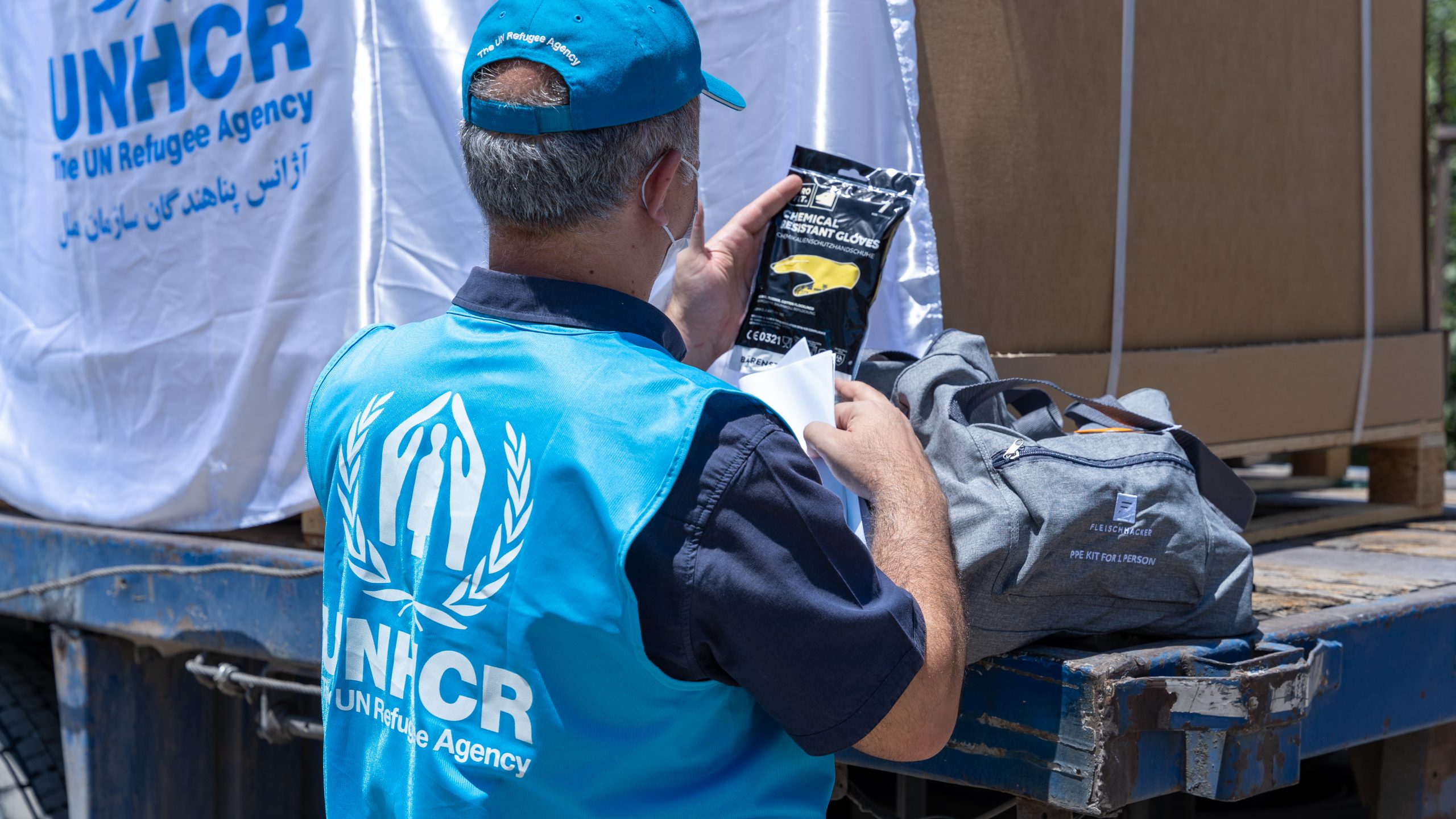How UNHCR is supporting Iran in the fight against COVID-19
Working closely with the Bureau for Aliens and Foreign Immigrant’s Affairs (BAFIA), UNHCR has enhanced its emergency support to the Government of Iran’s response to the COVID-19 pandemic. With the generous support of the European Union, Japan, UN CERF and Russia, UNHCR is assisting refugees in Iran through provision of essential medicines, medical and personal protective equipment, cash assistance, and awareness raising. So far, UNHCR has brought in over 100 tonnes of medical aid items and provided COVID-19-specific cash assistance to almost 5,000 individuals.
Bearing in mind the need to limit movements and to ensure social distancing, UNHCR has increased its helplines capacity so that refugees can continue accessing protection services, which contributes to addressing the heightened needs of persons with specific needs, including women and children. UNHCR’s hired lawyers and psycho-social counsellors also continue to provide legal advice and counselling to refugees via phone. However, more support is needed for the international community to share with Iran the responsibility of hosting one of the most protracted refugee situations in the world while ensuring protection against the ongoing pandemic.
COVID-19 and healthcare services to refugees
Thanks to Iran’s inclusive policies, refugees and even undocumented foreign nationals affected by COVID-19 can approach hospitals and health posts, and access free of charge COVID-19 testing, treatment and hospitalisation, in the same way as Iranian nationals.
Additionally, through the Universal Public Health Insurance, UNHCR support access to secondary and tertiary healthcare for the most vulnerable refugees. This provides a safety net to some of those who are particularly vulnerable to the virus, such as individuals with pre-existing conditions.
In 2020, UNHCR could however only help a third of the 300,000 most vulnerable refugees in enrolling in health insurance, due to limited resources. As COVID-19 is stretching health services thin, international support is needed more than ever to avoid exacerbating refugees’ vulnerabilities.
Gift Cards in response to COVID-19
Since April 2020, UNHCR and the Government of Iran have rolled out a Gift Cards project consisting in one-off cash grants to cover three months’ worth of Minimum Expenditure Basket, as a response to increased vulnerabilities. According to UNHCR’s observations in 2020, 95% of Afghan refugees who were reached out to, reported a decrease in their household’s income, which they attributed to COVID-19. Furthermore, half of the unemployment amongst main breadwinners was reported to be due to COVID-19. Many therefore have had to resort to negative coping mechanisms, such as borrowing money, reducing the number of daily meals, or selling household assets.
As of June 2020, almost 5,000 persons had been assisted with the Gift Cards project. Much more support is however needed, as the socio-economic impact of COVID-19 far outstretches the resources currently available to addresses refugees’ exacerbated needs.
Your support can help save lives
Thanks to donors and partners, UNHCR has been able to help the fight against the pandemic that has affected the entire world. UNHCR extends a special thanks to its partners for contributing to the COVID-19 response in Iran: The European Civil Protection and Humanitarian Aid Operations (ECHO), the European Commission’s Directorate-General for International Cooperation and Development (DEVCO), Japan, the Russian Federation, and the UN Central Emergency Fund (CERF).
Support for UNHCR’s regular activities under the umbrella of the Solutions Strategy for Afghan Refugees (SSAR) further complements the emergency measures in response to COVID-19, by strengthening inclusive national systems, including for health, and mitigating the virus’ socio-economic impacts.
As of September 2020, UNHCR’s COVID-19 response in Iran was 75% funded, with some USD 4 million still being sought to be able to continue provide basic assistance to the most vulnerable refugees. Overall however, as we near the end of 2020, UNHCR’s Iran operation remains chronically underfunded, with only 34% of the required funding received.

